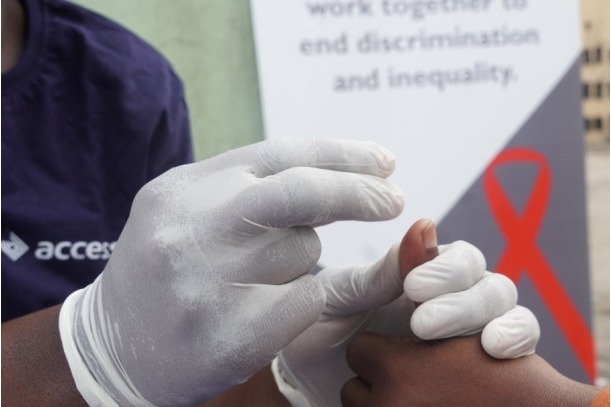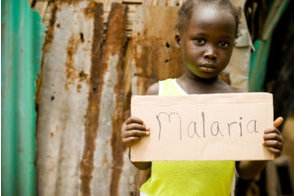Curbing preventable deaths from HIV/AIDS in Nigeria

Summary
The current macroeconomic challenges notwithstanding, concerted efforts need to be made to strengthen the health and wellbeing of Nigerians who form the large pool of labour and consumers to drive the country’s economic growth and corporate profit.
“Health is wealth”. The popular saying, traced to ancient Roman literature, remains axiomatic. Good health is essential to an individual’s ability to earn an income from active, productive activities that helps to prevent or fight poverty. The general wellbeing of the citizens also determines the level of economic productivity of a country. According to Global Affairs, a healthy population is more likely to experience sustained economic growth.
Good Health and Well-being is the Goal 3 of the United Nations Sustainable Development Goals (SDGs). SDG 3 aims to ensure healthy lives and promote well-being of all, regardless of age, as countries strive for a world free from poverty, hunger, disease, and preventable deaths. Indeed, the achievement of nearly all the other 16 Goals are dependent on health.
The importance of health, juxtaposed to the prevalent problem of access to quality healthcare in Nigeria, is a major concern. Recent statistics by the United Nations rank Nigeria as one of four countries with the lowest life expectancies in the world. Nigeria, the most populous country in Africa, has an average life expectancy of 55 years – only slightly outperforming Central African Republic, Lesotho, and Chad. To put this into perspective, the global average life expectancy is 73 years. On average, therefore, Nigerians live 18 years less than citizens of other countries.
Given Nigeria’s large population of over 200 million people, and having one of the fastest-growing populations in the world, the challenge of its inadequate healthcare systems can hardly be overlooked and should certainly not be ignored. According to the World Health Organisation (WHO), diseases like malaria and tuberculosis still constitute a major public health problem in Nigeria. Another disease that remains a major public health challenge in the country is HIV/AIDS.
In 2020, it was estimated that 37.7 million people worldwide were living with HIV. Approximately 1.5 million new cases and about 680,000 deaths occurred from HIV-related causes that year. Africa had a disproportionate burden of the disease, with estimated 25.4 million cases.
At least 1.7 million people in Nigeria are currently living with HIV. Infected women, estimated to be about 960,000, constitute the most affected group. Another 600,000 Nigerians are infected without knowing their status, per the 2018 Nigeria HIV/AIDS Indicator and Impact Survey report. Unreported or undetected cases enable the disease to continue to spread among people whose lifestyles make them vulnerable to the infection transmitted through sex and blood transfusion.
Access to formal treatment for chronic diseases, including HIV/AIDS, is challenged by affordability. With half of the population living in poverty, and without an appreciable level of coverage of health insurance, many patients are not able to pay out of pocket for treatments. In recent years, the government has called for support from private organisations in funding the healthcare sector. The Federal Government on its part improved the nominal budgetary allocation to health from N549 billion in 2021 to N711 billion in 2022. Despite the increase, the budgetary allocation to health in 2022 was less than 5% of the total budget, which is significantly below the 15% benchmark agreed by the African Union (AU).
The good news is that private sector institutions have been responding to the government’s plea for support. In an attempt to stem the prevalence of HIV/AIDS in Nigeria, Access Bank, as a leader in sustainability in Africa, has been implementing intervention strategies against the disease, with positive impact. The Bank, collaborating with other like-minded private sector stakeholders under the umbrella of the Nigeria Business Coalition Against AIDS (NiBUCAA), set up the HIV Trust Fund of Nigeria, in partnership with public agencies like National Agency for the Control of AIDS (NACA).
A key focus of the Bank’s contribution towards improved funding for health is the prevention of mother-to-child transmission (PMTCT) of HIV. So far, N62 billion has been committed by the Trust Fund towards the welfare of people living with HIV/AIDS (PLWHA) in the country. The programs are being implemented through collaborative and partnership frameworks.
The impact of Access Bank and NiBUCCA’s partnership intervention has been encouraging. Over 24,000 members of the National Youth Service Corps (NYSC) and NYSC Camp officials across various states in Nigeria have been educated or trained on HIV/AIDS best practices and prevention. Another 7,000 young people have also benefited from the HIV awareness campaign executed nationally across secondary schools, while over 1,000 private sector employees have been provided with HIV self-test kits and information.
There are collateral challenges that come with HIV/AIDS. For instance, patients are often stigmatized, shown lack of empathy, or outrightly ill-treated by health workers. This often leads to preventable deaths among patients. The unprofessional treatment of patients is often informed by lack of motivation and overwhelming number of patients that the grossly underpaid health workers have to attend to on a daily basis. Discrimination against People living with HIV/AIDS (PLWHA) is also rife in both public and private domains, causing many affected persons to lose their basic rights.
Through its partnership with NiBUCCA, Access Bank has continued to broaden its support. Over 180 private organizations have been trained to adopt the best workplace policies and health culture to prevent discrimination.
Despite these efforts, more private sector institutions need to contribute towards improving Nigeria’s health system to reduce preventable deaths. The current macroeconomic challenges notwithstanding, concerted efforts need to be made to strengthen the health and wellbeing of Nigerians who form the large pool of labour and consumers to drive the country’s economic growth and corporate profit.
More governmental and non-governmental organisations need to put their money where their mouth is. They have to strive towards the achievement of the SDGs by 2030. By pursuing SDG 3, we will improve our chances of achieving the development of communities and the national economy.
Omobolanle Victor-Laniyan is Head of Sustainability at Access Bank.
Related
-
Defeating malaria requires new approaches
Although the global death toll caused by malaria fell by almost 40% between 2000 and 2015, there has been slow progress in ...
-
UPS to expand vaccine equity programme to Nigeria, Kenya
UPS has delivered nearly 1.5 million COVID-19 vaccine doses via drone to underrepresented populations, as well as rural and ...
-
Low-income countries spend just $17 per capita annually on health – WB
Despite growing needs, spending has stagnated in real terms since 2018, with the priority for health ...







